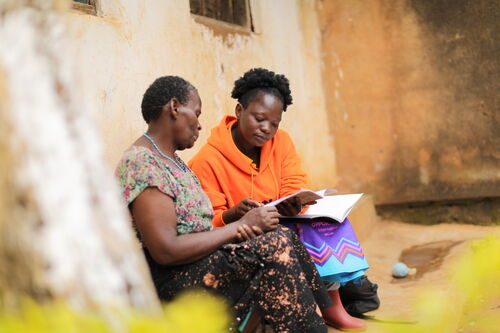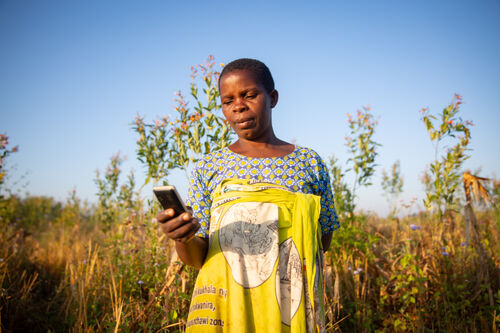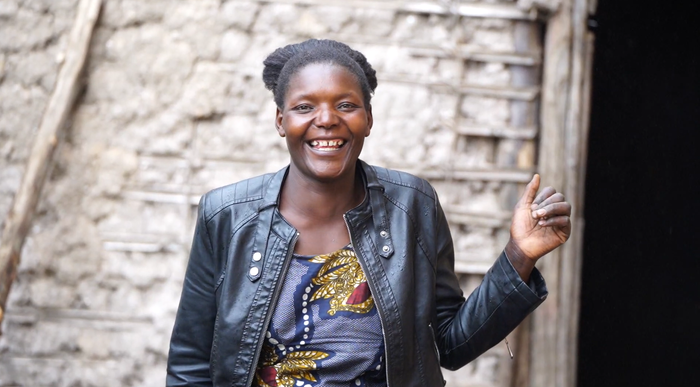What do you do when you want to save your hard-earned money somewhere secure, or pay an invoice for a service, or withdraw money to buy food? You go to the bank or open up your mobile banking app on your smart phone. But we are in the minority. For many people, particularly in Africa, it’s not that simple. They often have little or no access to any formal banking services.
Some of the main reasons for this are a lack of equipment and training, legal barriers, the role of gender norms in their community, and time and mobility constraints. By addressing the access to financial services for women - like credit, savings and payments, combined with finance training - the gender gap in financial inclusion can begin to be closed. This is where we come in.

Whilst financial inclusion in Africa has improved over the past decade, there is still a significant gap between men and women. Bank enrollment for women has not been as high for women as it is for men. In Sub-Saharan Africa, 63% of women do not have a bank account, and in Northern Africa it is 82%. For these women, they face structural barriers, including the lack of official identification needed to open a bank account or access a loan, the long distances to travel to financial institutions and their lack of financial literacy.
Adding to this, as the world becomes more digital and moves services online, this is further marginalizing women across Africa. There are more than 400 million adults across Africa that do not have access to digital financial services, of whom nearly 60% are women. There are still millions of woman in Africa who do not own a phone or have access to one, excluding them from accessing digital financial services.When women are able to access a phone, this is often accompanied with distrust in the systems that they are not familiar with and could leave them open to being taken advantage of.

So, how are we tackling the gender gap in financial inclusion? Throughout our programmes we are:
- Increasing access to financial services, particularly for those in rural areas.
- Improving investment in women and their businesses.
- Educating women and girls in finance.
- Build trust in and usage of digital services.
Thanks to supporters like you, we are improving access to financial services for our female clients through group lending and female-orientated financial products. We are also working hard to build trust through our local relationship officers to encourage women to use financial services and new technologies, like mobile phone banking. Training in agriculture, finance and business is enabling women to make wise financial decisions and to invest in their business. We also provide training in gender for local communities, which breaks down some of the gender stereotypes and highlights the importance of involving women in business with men and community leaders. By encouraging household responsibilities to be shared, women can invest time into their business and add value to the household.
Financial inclusions gives women the tools to create an income, provide for their family and participate in the economy. With more women accessing finances, they are not only supporting their family but are contributing to the economy and helping lift their wider community out of poverty.
Together we can inspire, empower, invest in and embrace financial inclusion of women. Together we can close the gender gap in financial inclusion.
Find out more about how we are working to inspire, empower, invest in and embrace financial inclusion of women across Africa.
